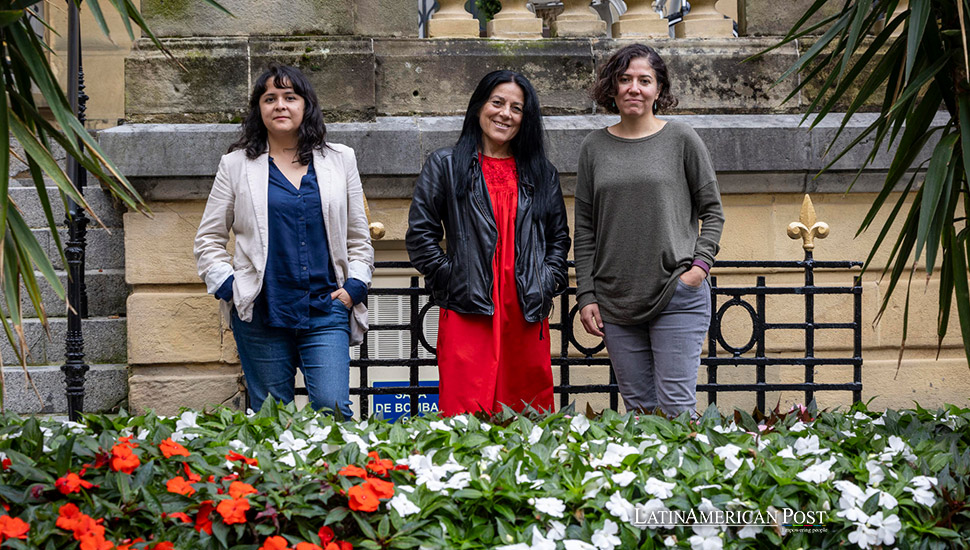Breaking the Cycle of Violence: Sujo’s Fight for Redemption in Mexico

In Sujo, Mexican filmmakers Astrid Rondero and Fernanda Valadez explore the story of a cartel hitman’s orphaned son and his struggle to escape violence. Premiering at the San Sebastián Festival, the film asks whether hope and support can transform a dark future.
The Untold Story of Orphans of Organized Crime
Sujo, directed by Astrid Rondero and Fernanda Valadez, shines a light on a lesser-discussed aspect of Mexico’s organized crime epidemic—the orphans left behind by cartel violence. While the country is no stranger to conversations around crime, the filmmakers argue that there has been little focus on the thousands of children who grow up parentless due to criminal activities. With Sujo, they seek to answer a profoundly complex question: can these children break free from the cycles of violence and hardship that have shaped their families’ lives?
Set against the backdrop of rural Mexico, Sujo centers on Juan Jesús Varela, nicknamed Sujo, the son of a sicario (hitman) marked by the stigma of his father’s betrayal. As he navigates the emotional and social complexities of his circumstances, he finds himself torn between the pull of the criminal world and the possibility of a new life. Through Sujo’s story, the film explores the role of community, the impact of trauma, and the power of redemption.
“We wanted to examine what happens to the children left behind,” Rondero says. “These kids are vulnerable to recruitment by cartels because they grow up in an environment where criminal organizations seem like the only path to belonging and survival.”
The Role of Women as Protectors
One of the most compelling elements of Sujo is the role of women in providing the protagonist with a lifeline. Yadira Perez Esteban, who plays Sujo’s aunt, steps in to raise him after his father’s death. She helps him survive and offers him a chance to escape a violent destiny. The film highlights the crucial role that women in these communities play in forming protective networks, especially when men are often absent due to migration or involvement in criminal activity.
“Women are often the ones who hold these communities together,” Valadez notes. “In Sujo, the aunt and the women around him give him a chance to see another way of living.”
The aunt’s character is symbolic of a larger phenomenon in Mexico, where many women take on leadership roles in families and communities when the men are gone. By creating an emotional and physical safety net, they provide a path for young men like Sujo to forge their own identities away from the violent legacies of their fathers.
Sujo’s transformation is made possible not only through the strength of his aunt but also through the compassion of a teacher, played by Argentine actress Sandra Lorenzano. Lorenzano’s character, like Sujo, is a migrant in her own right, and the connection they form allows him to envision a life beyond the violence.
Education as a Path to Change
The film also emphasizes the transformative power of education—both formal and informal. The relationship Sujo develops with his teacher is pivotal in his personal growth. In this case, education is not limited to the academic knowledge imparted in classrooms but also extends to emotional guidance and moral support. Lorenzano’s character helps Sujo see that he has agency over his life, even in a society that often tells him otherwise.
“The teacher’s role is vital in showing Sujo that he has the power to change his destiny,” Lorenzano explains. “It’s a message that’s especially important in a country where so many young people feel trapped by the circumstances of their birth.”
In Sujo, education is portrayed as a critical factor in breaking the cycle of violence. Through the mentorship and guidance of his teacher, Sujo begins to imagine a future for himself that is not dictated by his past or his family’s history. This portrayal serves as a reminder of the importance of investing in educational opportunities, especially in marginalized communities where options for social mobility are limited.
A New Kind of Hero
The film’s most radical idea is that Sujo doesn’t have to be extraordinary to escape his circumstances. Unlike many coming-of-age stories, Sujo does not present its protagonist as a genius or a prodigy who rises above adversity through sheer talent. Instead, it focuses on the power of small, everyday choices and the support of a loving community.
“We wanted to show that it doesn’t take a superhuman effort to escape the cycle of violence,” Valadez says. “Sujo needs the belief that he deserves more than what his circumstances have handed him—and the support of people who can help him see that.”
In Sujo, the character’s journey is defined by his growing awareness that he can shape his future. The support of his aunt, his teacher, and the women helps him realize that he is not destined to follow in his father’s footsteps. This message resonates deeply in a country where many young people are pressured into lives of crime by the lack of viable alternatives.
By the film’s end, Sujo can make a different choice. Whether or not he takes it is left ambiguous, but the film’s message is clear: with the proper support, even the most vulnerable young people can find a way out of the cycle of violence.
The Hidden Legacies of Violence
The film also explores the hidden legacies of violence and how they shape the identities of young people. Sujo’s father, though a criminal, is portrayed as a loving and devoted parent, which complicates the narrative of good versus evil. Similarly, Sujo’s aunt, who has experienced her share of loss, does not seek revenge but instead channels her energy into helping her nephew escape a similar fate.
“There are no easy answers regarding these characters,” Rondero says. “Their experiences shape them, but they also have the power to choose how they respond to those experiences.”
The idea that young people are shaped by their environment but still retain the ability to make their own choices is central to Sujo. The film challenges the notion that children of criminals are destined to follow in their parent’s footsteps, suggesting instead that they can forge their paths if given the opportunity.
For Rondero and Valadez, this is the crux of their message: the future of Mexico’s youth does not have to be dictated by the violence surrounding them. With the proper support, young people like Sujo can break free from the cycles of trauma and loss that have defined their families for generations.
A Call for Compassion
Sujo is more than just a film about a young boy’s struggle to escape violence—it’s a call for society to rethink how it supports its most vulnerable members. Through Sujo’s journey, Rondero and Valadez highlight the importance of compassion, community, and education in helping young people envision a better future.
Also read: Brazil’s New Oscar Contenders: A Rich History of Latin American Cinema
As Mexico continues to grapple with the devastating effects of organized crime, Sujo reminds us that there is always hope, even in the darkest of circumstances. With the right support, young people like Sujo can break free from the cycles of violence and create lives that are defined not by their past but by their potential.





